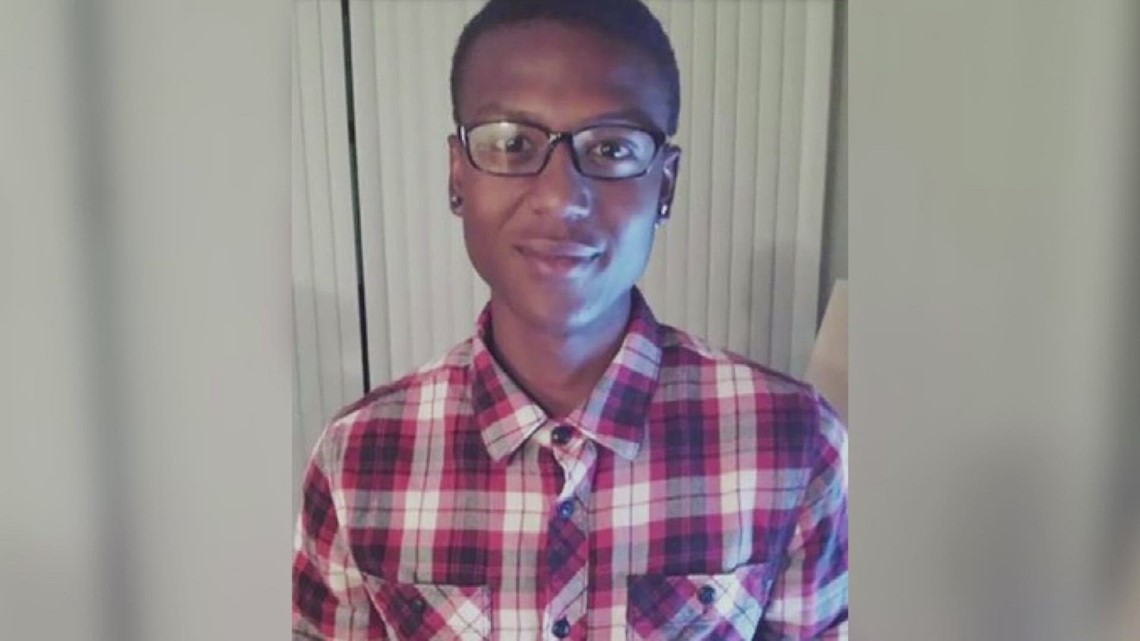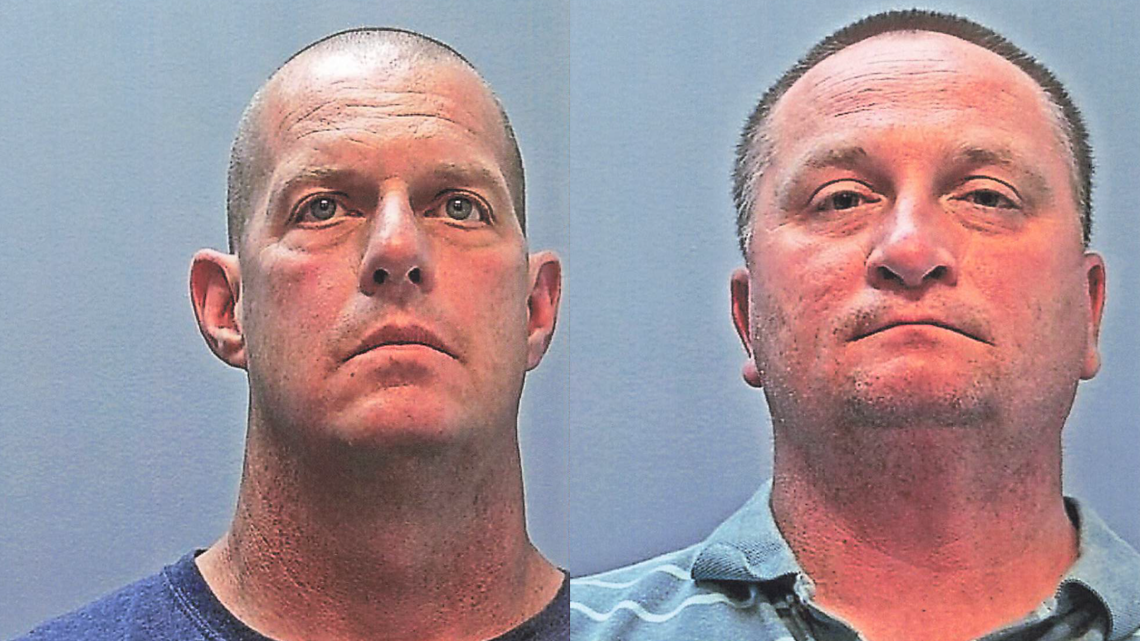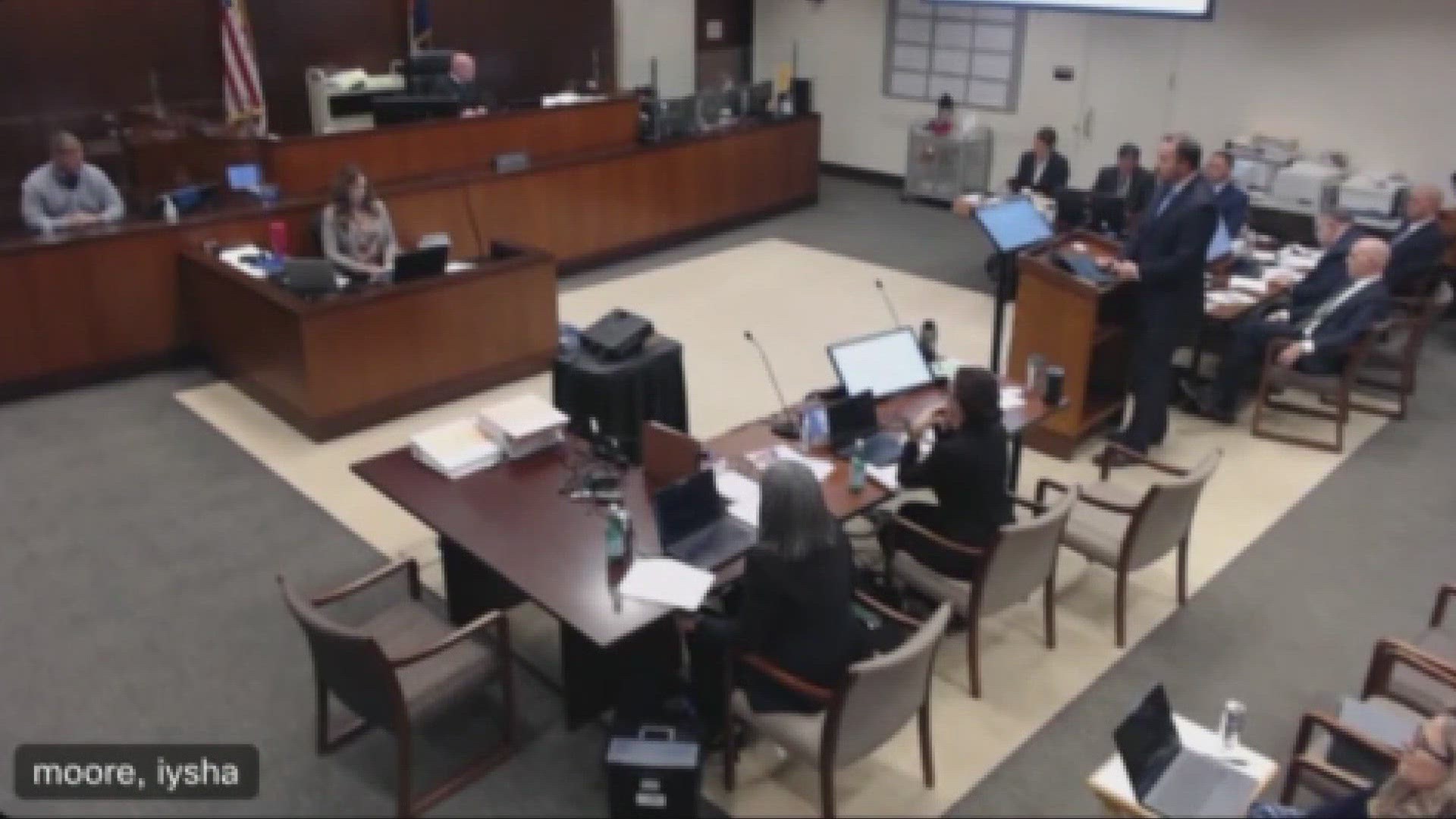AURORA, Colo — The man who provided training about ketamine protocols to Aurora Fire Rescue paramedics now on trial for the 2019 death of Elijah McClain spent hours on the witness stand Monday telling jurors about the policies and procedures surrounding the sedative's usage.
Officers first contacted McClain on Aug. 24, 2019, after a teenage boy called 911 and relayed that he saw McClain wearing a coat and mask and acting "suspicious." Within seconds, Nathan Woodyard, the first officer to arrive, grabbed McClain. He and officers Randy Roedema and Jason Rosenblatt then took McClain to the ground in a struggle.
During the struggle, Woodyard used a carotid hold on McClain, a maneuver that caused him to lose consciousness briefly. Afterward, McClain was handcuffed and restrained on the ground for more than 10 minutes.
Later that same night, paramedics Jeremy Cooper and Peter Cichuniec injected McClain with ketamine. His heart stopped, and he later died.
Monday, Travis Chambers walked the jury through the training slides that he used for the ketamine training. It indicated that Cichuniec and Cooper, who are each charged with reckless manslaughter and assault related to McClain's death, were told about the potential dangers of the drug if not given appropriately.
"The appropriate dosing is what the protocol stipulates. So anything outside of what the protocol states would be inappropriate," Chambers told the jury. "I'll just reinforce the second one that says large doses increase the risk of harmful side effects."
The training outlines possible doses of the drug as 300, 400, or 500 milligrams as starting points related to a person's size if an exact weight is not available.
McClain was given 500 milligrams - despite weighing only about 140 pounds. That is the largest dose paramedics were allowed to administer without additional approval.
Chambers told the jury about some of the potential side effects - such as increased salivation or drooling which could be dangerous if that liquid was swallowed into the lungs.
He also told the jury about how it might affect someone's breathing.
"The training does say that if given in large doses [ketamine] does have respiratory depressive effects," Chambers said.


At the time of McClain's encounter with police and paramedics, ketamine could only be given in instances where someone had excited delirium. To believers, it is a dangerous medical condition marked by superhuman strength, imperviousness to pain and severe agitation.
For decades, law enforcement officers across the country have been told – and warned – to look out for it.
But in recent years, the term itself has fallen out of favor. The American Medical Association and the American Psychiatric Association roundly criticized the use of the term in recent years.
However, attorneys for the paramedics honed in on the term, and said they acted appropriately based on the training surrounding ketamine and excited delirium and what officers had told them about McClain's behavior.
"Excited delirium was trained as a life-threatening situation? asked Cooper's attorney Shana Beggan.
Yes," Chambers replied.
"The whole point is rapid intervention?"
"Yes."
"The rapid intervention was ketamine administration," she said.
"Correct," Chambers replied.
Defense attorneys also pointed out that they did not have any training related to estimating a patient's weight.
While prosecutors contend the paramedics failed to properly monitor McClain immediately after ketamine, Beggan noted the training did not provide a timeline about when monitoring needed to occur and said the medics did monitor McClain in the ambulance.
On Monday, jurors also heard from three witnesses including an EMT from Falk, the ambulance company that responded to the scene. In her testimony, Alisa Gonzalez disputed statements made by Cooper in a recorded interview with an Aurora Police investigator.
RELATED: Interviews with paramedics contradict body camera footage from incident with Elijah McClain
Last week, jurors were shown that video of Cooper's statements where he claimed McClain was still "actively fighting" and even tried to walk up a grass embankment.
"Did you see any resistance by the patient when the ketamine was given to him?" asked prosecutor Ann Joyce.
"Not from my point of view," Gonzalez said.
"Did you see him do anything?"
"No."
"Was he trying to actively get up at all?" Joyce asked.
"No."
"If the patient had tried to get up, would you have seen that, do you think?"
"Yes."
"Did you ever see the patient get up and try to walk up the sort of grassy embankment?"
"No," Gonzalez said.
Prosecutors have argued that McClain's health was deteriorating as a result of the struggle with officers, which included a carotid neck hold that cut off oxygen to his brain. After that, McClain vomited, inhaled some of it, and experienced a drop in oxygen in his body and a spike in acid in his bloodstream, according to previous testimony.
Instead of assessing McClain, prosecutors claim the paramedics chose to inject him 500 milligrams of ketamine – a dose much too large for someone of McClain's size.
"During the short period of time that you're waiting [for the ketamine], did you ever see the patient become combative?" asked Joyce.
"No," Gonzalez said.
"Did you see any movements?"
"No."
"Did you see Mr. Cooper or Mr. Cichuniec checking the patient at all during this period of time?"
"I don't remember."
"Were they getting any kind of vital signs?"
"No."
"How about checking a blood pressure?"
"No."
"How about checking the patient's heart rate?"
"No."
"Was anyone checking his airway?" Joyce asked.
"No," Gonzalez said.
Jurors also heard from a crime scene investigator with the Aurora Police Department who took photos to document the scene on the night McClain encountered officers. She also attended McClain's autopsy and took photos.
McClain's coworker at Massage Envy also took the stand Monday morning and told jurors that McClain was always "freezing" and often wore warm clothing, even in the heat of the summer.
She also told the jury that McClain was active and usually ran or biked to work and would exercise in the parking lot during his breaks.


Prosecutors only plan to call two additional witnesses and are expected to wrap their case as early as Wednesday.
The paramedics are the last two of the five men indicted in McClain's death to go to trial. In the first trial, a jury returned a split verdict for Aurora officers Randy Roedema and Jason Rosenblatt. Roedema was found guilty of criminally negligent homicide and third-degree assault and will be sentenced in January. That same jury acquitted Rosenblatt of all charges.
A separate jury acquitted Aurora officer Nathan Woodyard. Following his acquittal he was eligible to return to Aurora Police, and in late November the city confirmed he elected to reintegrate with the department and was on restricted duty.
SUGGESTED VIDEOS: Elijah McClain death

